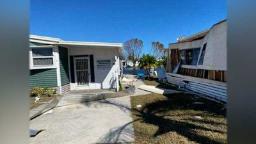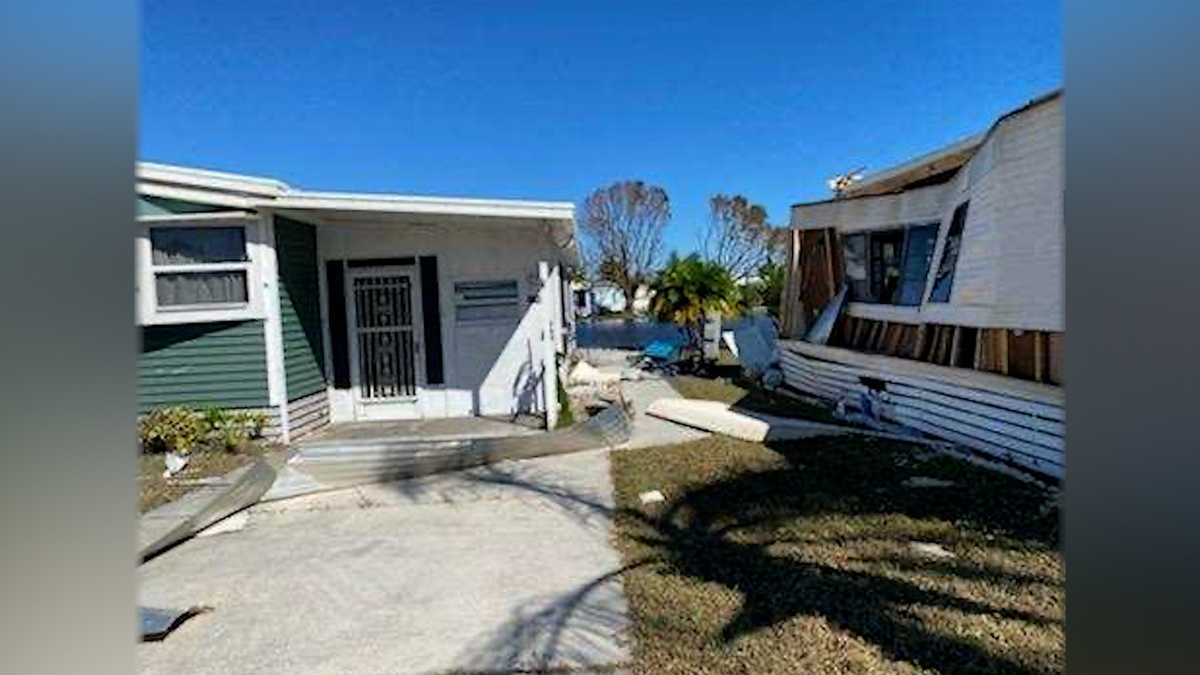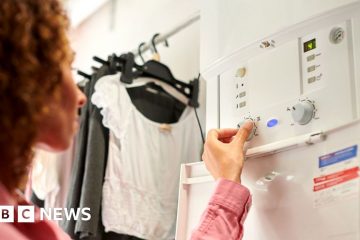
Thursday was supposed to be the day Sue Poulin started her annual drive from Naples to her winter home in Fort Myers, Florida. However, her home, like so many others, was badly damaged by Hurricane Ian. Photos sent to 74-year-old show the waterline from flooding in her home reached several feet high, leaving behind sludge, damage and mold. Millions of people are turning to the Federal Emergency Management Agency for financial assistance rebuilding in the wake of Ian. But that aid is not an option for Poulin or any other ‘snowbird’ who has a home in Florida that is not their primary residence.Poulin said this is something she and may of her friends, who also spend their winters in Florida before returning to northern states for the summer, have had to learn the hard way since the storm hit last week. “If that’s not your primary home, if your car isn’t registered there, that’s not your primary residence and you get nothing,” she said. “We matter and we should be compensated and helped.”Poulin told WMTW she lives in Florida for about seven months out of the year, but maintains her Maine residency and home to stay close to family and keep the home in Naples she has owned since the 1970s. She said she has tried to reach FEMA by phone and online, but has not filed an application for aid because she now knows she will not qualify. FEMA lists a home not being a primary residence as one of the top five reasons applications for disaster aid get rejected. Poulin, who rents out her Maine home during the winter months, said she is unsure where she will live this winter with her Florida mobile home now uninhabitable.
Thursday was supposed to be the day Sue Poulin started her annual drive from Naples to her winter home in Fort Myers, Florida.
However, her home, like so many others, was badly damaged by Hurricane Ian. Photos sent to 74-year-old show the waterline from flooding in her home reached several feet high, leaving behind sludge, damage and mold.
Millions of people are turning to the Federal Emergency Management Agency for financial assistance rebuilding in the wake of Ian. But that aid is not an option for Poulin or any other ‘snowbird’ who has a home in Florida that is not their primary residence.
Poulin said this is something she and may of her friends, who also spend their winters in Florida before returning to northern states for the summer, have had to learn the hard way since the storm hit last week.
“If that’s not your primary home, if your car isn’t registered there, that’s not your primary residence and you get nothing,” she said. “We matter and we should be compensated and helped.”
Poulin told WMTW she lives in Florida for about seven months out of the year, but maintains her Maine residency and home to stay close to family and keep the home in Naples she has owned since the 1970s.
She said she has tried to reach FEMA by phone and online, but has not filed an application for aid because she now knows she will not qualify.
FEMA lists a home not being a primary residence as one of the top five reasons applications for disaster aid get rejected.
This content is imported from Twitter.
You may be able to find the same content in another format, or you may be able to find more information, at their web site.
Poulin, who rents out her Maine home during the winter months, said she is unsure where she will live this winter with her Florida mobile home now uninhabitable.
Note:- (Not all news on the site expresses the point of view of the site, but we transmit this news automatically and translate it through programmatic technology on the site and not from a human editor. The content is auto-generated from a syndicated feed.))



